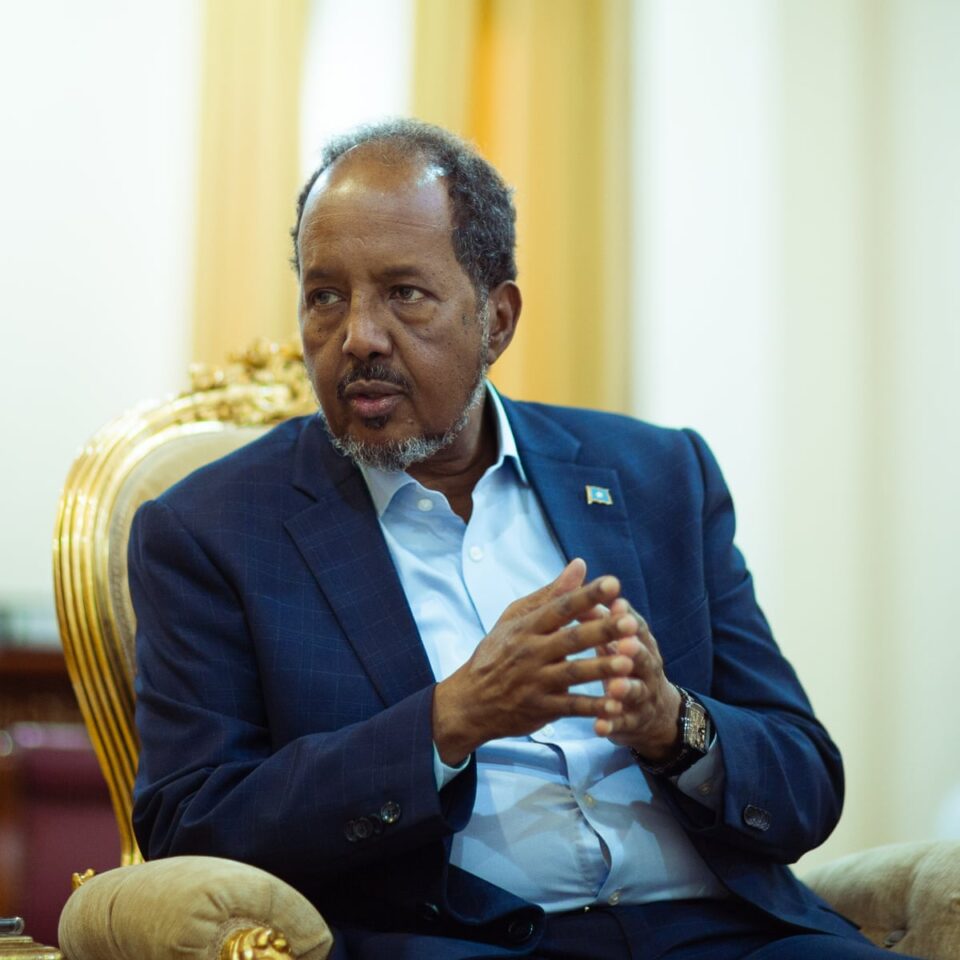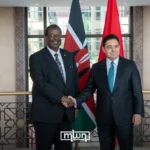By Jeff Mwaura
NAIROBI, Kenya – What began as a routine push to amend Somalia’s provisional constitution has escalated into a full-blown political crisis, with President Hassan Sheikh Mohamud now facing coordinated opposition from powerful political veterans, frustrated federal states, and a growing chorus of international concern.
The president’s centralization push—intended to usher in a direct electoral system and reconfigure the country’s power structure—has instead reignited long-dormant fears among regional leaders and political elites that Somalia’s fragile federal framework is under siege.
Federalism Under Fire
Puntland, the most autonomous of Somalia’s federal member states, has suspended cooperation with Mogadishu, effectively declaring self-rule. Jubaland, another key regional player, froze relations with the federal government late last year following disputes over local appointments and military deployments.
In both cases, officials accused President Mohamud of violating the spirit of the 2012 Provisional Constitution by pushing unilateral amendments without consensus.
“This isn’t reform—it’s federal rollback,” said Dr. Abdi Hassan, a political scientist based in Mogadishu.
“The president framed his move as modernizing the constitution, but in reality, it’s about consolidating power.”
A Calculated Return
In a rare show of unity, former presidents, prime ministers, and ministers returned to Mogadishu this month for closed-door consultations.
Among them is ex president Sharif Sheikh Ahmed, ex-PMs Hassan Ali Khaire and Omar Abdirashid Ali Sharmarke, figures with deep political networks and broad national appeal.
Their reappearance wasn’t symbolic. It was strategic.
“These aren’t nostalgia tours,” said a Western diplomat stationed in Nairobi.
“They’re testing the waters, and what we’re seeing is a calculated buildup to challenge the president politically—and perhaps even force early elections.”
Security Adds Fuel to Fire
Parallel to the political unraveling is a deteriorating security environment. Al-Shabaab’s ongoing offensive in the Shabelle valley has exposed major cracks in the government’s counterinsurgency strategy.
Government troops and allied local militias, known as Macawisley, have suffered heavy losses. Several strategic towns have fallen.
With over 100,000 civilians displaced and trust in state protection waning, analysts warn that political disillusionment could soon tip into broader unrest.
“Insecurity and political exclusion are a volatile mix,” said Abdullahi Farah, a security analyst in Mogadishu.
“If the state is seen as both unresponsive and incapable, people start looking for alternatives—armed or political.”
International Diplomacy in Motion
Behind the scenes, key diplomatic actors including the United Nations, African Union, and European Union are applying pressure. Sources familiar with donor discussions say there’s growing anxiety that the constitutional crisis, if left unresolved, could derail the 2026 electoral roadmap and jeopardize hard-won donor investments in institution-building.
“The optics of an exclusionary political process, especially one that sidelines federal states and opposition voices, are troubling to partners,” said a European official involved in Somalia policy.
The PM Dilemma
To defuse tension, the president recently deployed senior officials—Justice Minister Hassan Moalim and State Minister for Foreign Affairs Ali Omar—to signal openness to dialogue. But opposition leaders remain unconvinced.
“Dialogue without structural shifts is just theater,” said a senior member of the opposition.
“If the president is serious, the first step is to replace Prime Minister Hamza Abdi Barre.”
Appointed in 2022, Barre has drawn criticism for his unwavering loyalty to President Mohamud and his perceived role in weakening institutional independence.
His tenure has seen Parliament reduced to a rubber-stamp body, with no visible opposition caucus or oversight.
A Test of Somalia’s Political Maturity
Somalia’s immediate future now hinges on two questions: Will President Mohamud concede to opposition demands and recalibrate his approach? Or will he double down on centralization, betting that the opposition lacks the unity or will to escalate?
Experts warn the window for compromise is narrowing.
“What’s at stake is more than just who governs,” said Farah.
“It’s whether Somalia remains on a federal path or veers toward soft authoritarianism cloaked in legal reform.”
In a nation still scarred by decades of civil war and fragmentation, the current moment represents both peril and possibility.
What unfolds in the coming weeks may determine whether Somalia’s federal experiment survives—or snaps under the weight of ambition and mistrust.
(Additional reporting by our correspondent in Mogadishu. Edited by John Thiongo)





